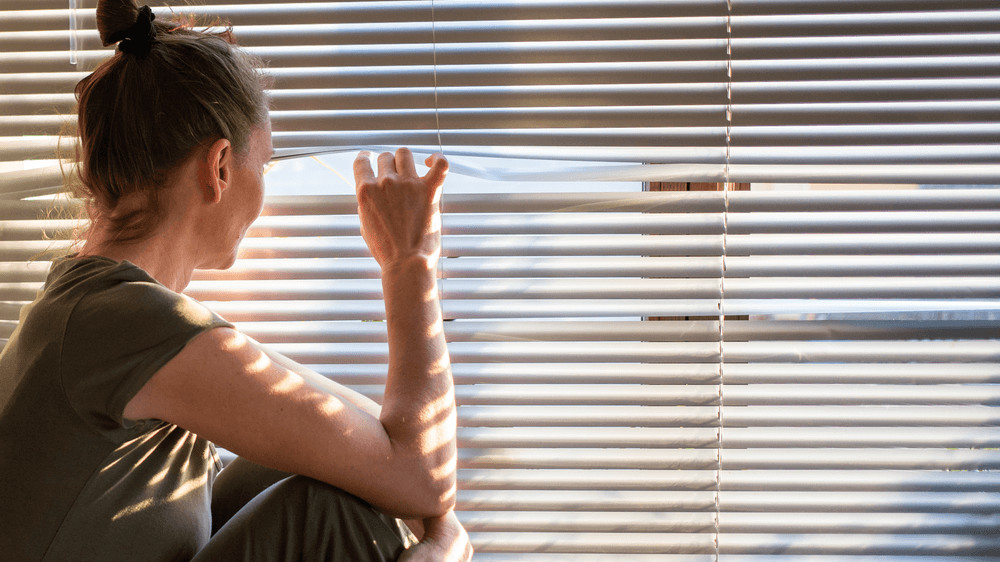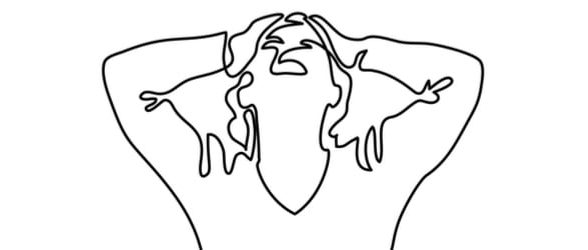How Can We Protect Our Mental Health When Discussing Disability and Assisted Suicide?
Content note: discussion of mental illness, suicide, and physician-assisted suicide
If you or someone you know are in need of support, please consider the following resources:
- National Suicide Prevention Lifeline: 1-800-273-8255
En Español: 1-888-628-9454
For people who are deaf/hard-of-hearing: 1-800-799-4889 - Crisis Text Line: Text HOME to 741741
- The Live On Movement
I’m not sure what role my opposition to physician-assisted suicide played in the nervous breakdown I had in 2016. There were a lot of triggering things going on in my life and severe mental illness can be unpredictable. I had showed up at as many hearings related to the issue as I could because I had studied it in my disability studies research and I saw my anti-assisted suicide advocacy as something good that I could do to help others with disabilities. However, I started having panic attacks strong enough to wake me up in the middle of the night. I had lived with depression for seventeen years, but I suddenly experienced mania and paranoia, so I stepped away from that topic. Apparently fighting the darkness associated with the assisted suicide movement was too much for my brain to handle, so I moved into the light of training to help disabled children as a special education teacher.
Even though I stopped engaging in anti-assisted suicide advocacy, stopped following Twitter accounts that addressed that issue specifically and generally attempted to just “not think” about it, news about assisted suicide has remained a part of my world. A Twitter account I previously followed for social purposes once retweeted an article arguing for assisted suicide for mentally ill people on Suicide Prevention Day. I was once eating at a restaurant and the people behind me were discussing their support of assisted suicide. It’s their right to have that discussion, but it indicates that the topic of assisted suicide is becoming a visible part of our culture that disabled people will have to deal with.
Especially for people with disabilities, this exposure to assisted suicide might lead to suicide contagion, (known as the Werther Effect), which can happen when a person living with suicidal ideation encounters the message that suicide is a positive solution to human suffering. The Centers for Disease Control and Prevention (CDC) describes suicide contagion as “a process by which exposure to the suicide or suicidal behavior of one or more persons influences others to commit or attempt suicide.”
Given that many of the reasons people support assisted suicide correspond to ableist, stigmatizing experiences that disabled people have on an everyday basis, the rhetoric used by proponents of the practice can be triggering, definitely a source of suicide contagion. The situation is particularly difficult for our disabled brethren in Canada, where a bill has recently passed expanding the availability of physician-assisted suicide to people with non-terminal disabilities. It’s an option that can be accessed much faster than the services they need to lead fulfilling lives. Alysm745, an indigent disabled woman who intends to pursue assisted suicide in Canada tweeted, “I’m feeling as if governments conspired for years to push disabled into near starvation, abject poverty, homelessness and without proper health supports-in order to arrive at this moment in time-knowing that we’d be in the condition of practically begging for assisted suicide.”
Gabrielle Peters, one of the lead organizers against the expansion of assisted suicide in Canada tweeted, “I don’t discuss this much, but as a sexual assault survivor this experience has been very much like the worst of court and public discourse from decades past, minus having a lawyer to insulate some of it. We’ve been called liars, exaggerators and accused of some hidden motives.” As a sexual assault and bullying survivor who has studied utilitarian bioethics and the history of the right to die movement in my musicology research, I agree with Peters: the ableist ideology that proponents of assisted suicide operate from can reasonably be experienced as a violent attack. Moreover, statements in support of expanding assisted suicide to disabled people in the US have been part of hearings I’ve attended and have appeared in the media, so it’s not irrational to surmise that a similar law may come to the United States someday.
Because of our exposure to the many disturbing consequences of systemic ableism, it’s important for disabled people to find coping strategies to keep ourselves healthy. I think most disability rights activists agree that we live in a world that has proven the axiom “good always wins” to be false. Sometimes ignorance and oppression prevail. That doesn’t mean that disabled people should accede to that oppression, but accepting the reality that we cannot fix everything or win all the time can help stave off social justice burnout and recrimination.
As a disabled Christian, I have found that my faith in a loving God helps me cope in a world that does not accommodate my neurological impairment adequately, sets out plenty of environmental triggers for suicidal thoughts, and now presents assisted suicide as an option to people like me. It is true that some disabled people have had terrible experiences in faith communities. I have, too. Moreover, those of us who are living in the West are fortunate to live in a pluralistic society where people have the freedom to accept or reject religion as they see fit. As a disability rights activist who wants all people to lead fulfilling lives, I want the best for others no matter what they believe. However, as someone who has freely chosen to follow Jesus, I feel that I would be remiss if I didn’t mention Him. Sometimes my mental illness or struggles with suicidal thoughts place me in situations in which I am powerless; yet I remember that I belong to and am watched over by a powerful, compassionate God who loves everyone and wouldn’t want anyone to take their life, no matter what difficulties we experience.
I have also sought support and practiced self-care through dialectical behavior therapy (DBT), a therapy developed by a woman with psychiatric disabilities for other people battling those challenges. Marsha Linehan developed the therapy to help herself cope with the symptoms of Borderline Personality Disorder after she was hospitalized with suicidal ideation several times. DBT is a combination of cognitive behavioral therapy, validation, and Buddhist ideas about suffering that can be accessed through Medicare and Medicaid. It includes techniques for asking for what one wants or needs, achieving successful interpersonal relationships, problem-solving, self-advocacy, and mindfulness training.
Another thing that helps me cope with triggering topics is media. I often listen to Christian contemporary music, classical music, jazz, and protest music from the 1960s. As an autistic person with ADHD, the sound of the music helps ground me as I carry out everyday activities, and it also provides inspiration and strength when I am engaging in disability rights advocacy. I also recommend watching movies or reading books about love, forgiveness, and resistance to oppression. All of these things can help disabled people process the emotions triggered by anti-assisted suicide activities or disability rights advocacy in general.
Even with all these coping mechanisms, sometimes assisted suicide is just not a healthy topic for a person with disabilities to engage with, so if protecting one’s mental health means avoiding that issue, then those of us who can avoid it should make that choice. But it can help to have a safe space to vent to other disability rights activists who are fighting the same issue. Since beginning my journey as a disability studies scholar and disability rights advocate, I’ve consistently seen disabled activists from all ideological and religious perspectives band together to support each other’s well-being, because essentially, we are functioning as a kind of “family” unit. Disabled people are up against a lot in our society and checking in on each other either online or in person can help us cope with the distress that this kind of advocacy engenders.
At the end of the day, there will always be injustice to resist and healing to be done. Disabled people around the world can only collaborate, comfort each other, fight for each other, and keep working for good. We can share resources with each other and support those most marginalized by stepping up for each other when society fails. We can share our stories of overcoming suicidal ideation and emotional distress so that others can know that it is possible to persist in a society where powerful forces continue to push for assisted suicide. No matter how vast the darkness, we can keep walking together toward the light.
About Rooted In Rights
Rooted in Rights exists to amplify the perspectives of the disability community. Blog posts and storyteller videos that we publish and content we re-share on social media do not necessarily reflect the opinions or values of Rooted in Rights nor indicate an endorsement of a program or service by Rooted in Rights. We respect and aim to reflect the diversity of opinions and experiences of the disability community. Rooted in Rights seeks to highlight discussions, not direct them. Learn more about Rooted In Rights



